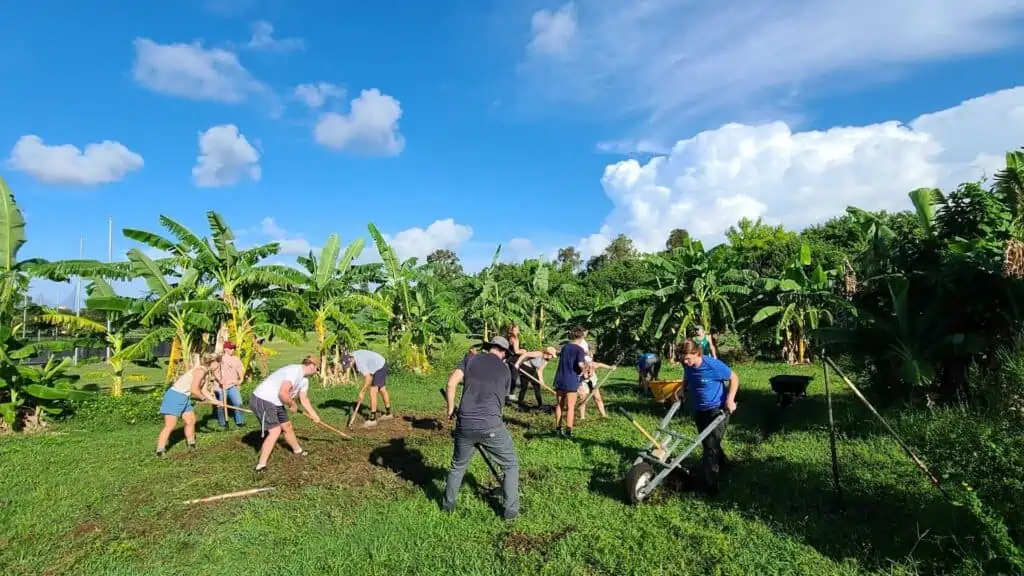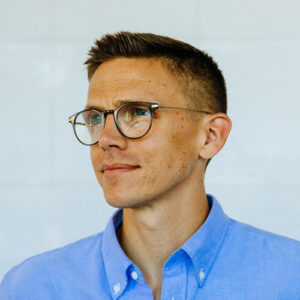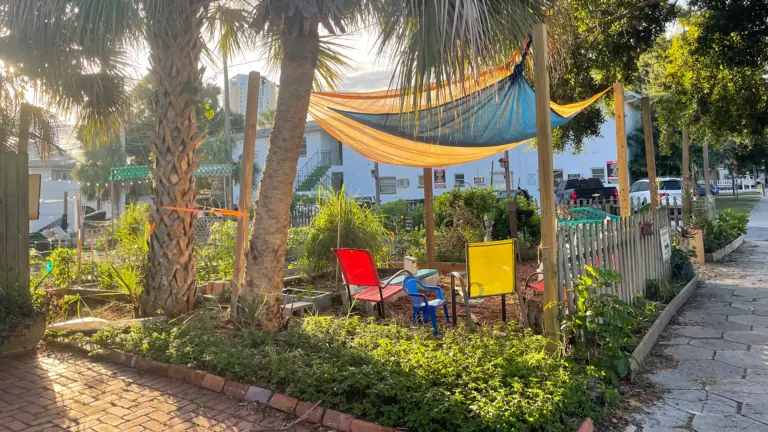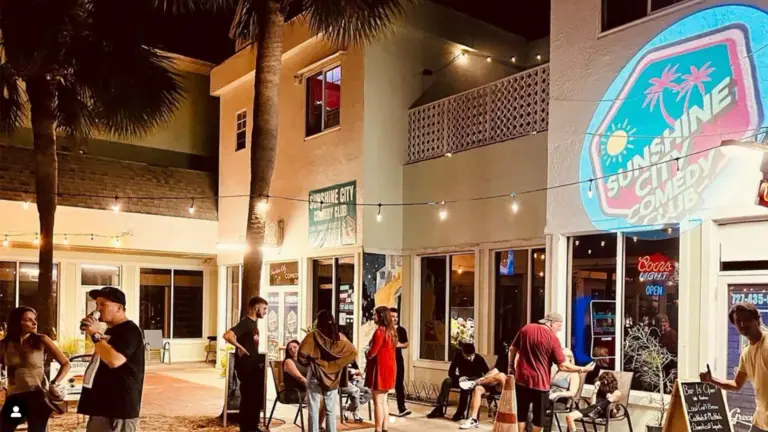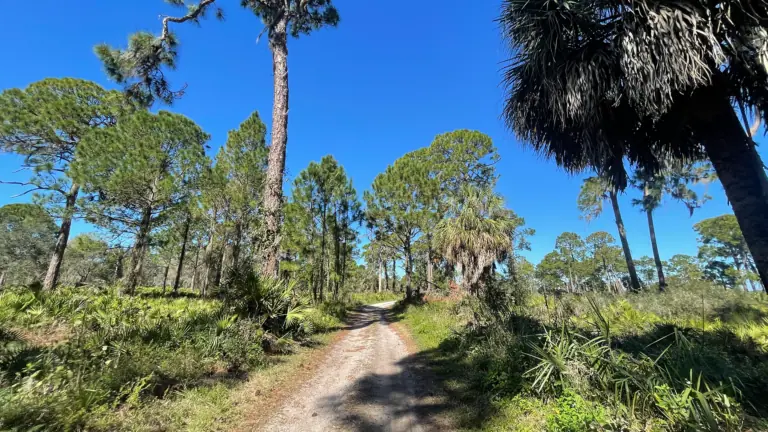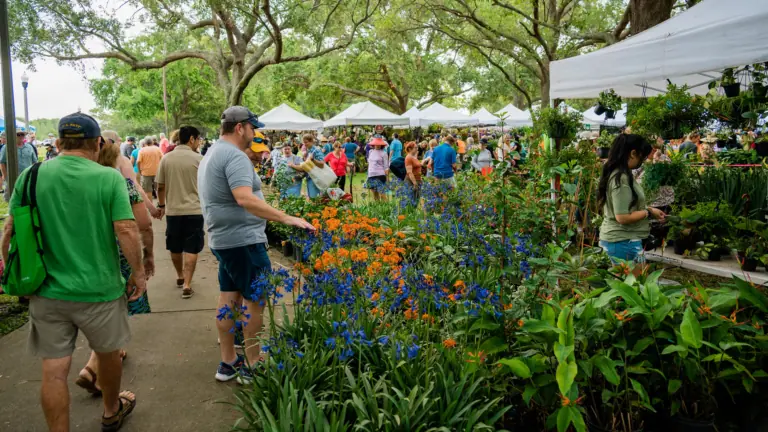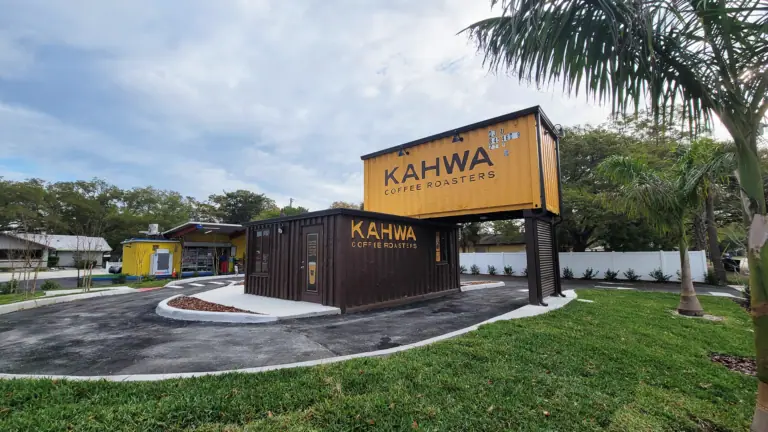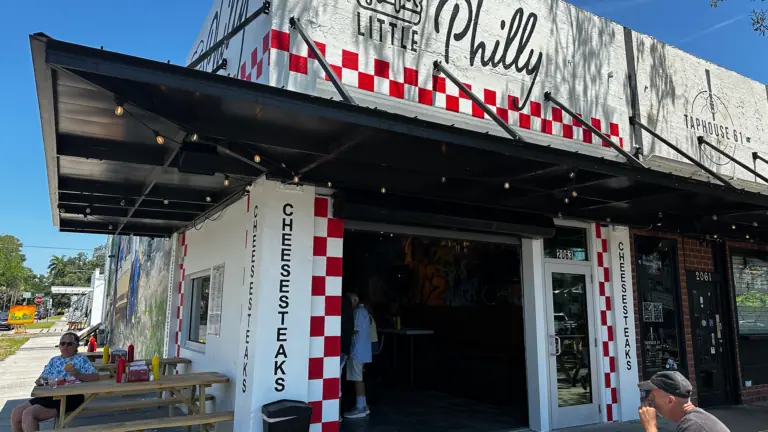The new St. Pete Center for Civic Engagement and Social Impact at Eckerd College has just announced its inaugural faculty fellows. Associate Professor of Environmental Studies Hilary Flower, Ph.D., and Environmental Studies Instructor, Internship Coordinator and Eckerd College Community Farm Committee member David Himmelfarb, Ph.D. are both working on projects that examine issues of equity through an environmental lens.
Himmelfarb hopes to create knowledge hub to support a more just and sustainable local food system in St. Petersburg. Students will be taken with learning more about local food justice urban agriculture and garden education initiatives. Educating the next generation of St. Pete residents on these significant issues is tantamount to building a more equitable community.
ADVERTISEMENT
St. Pete Center addresses food insecurity in the Sunshine City
Flower is in the process of planting trees in underserved communities in St. Petersburg to improve air quality and habitability. Called “Planting Seeds for Environmental Justice in St. Pete,” the multiyear project would use local resources to identify a pilot community to begin building relationships with homeowners and connecting nonprofits to people in need.
Called “Planting Seeds for Environmental Justice in St. Pete,” this project could vitally improve neighborhoods in need in the ‘Burg. Outside of improving the climate in communities, the project will have the dual effect of providing Global Environmental Change students, who may be overwhelmed with the enormity of environmental crises, with an actionable step toward making a difference.
Improving air quality one tree at a time
Overall, ECSPC work will focus on four areas: building a productive, equitable and inclusive economy; promoting environmental resilience, sustainability and justice; fostering arts, culture and innovation; and advancing human rights, dignity and opportunity.
ADVERTISEMENT
Himmelfarb and the Farm Committee have spent the last year working across campus and with more than 16 community organizations to launch the EC Community Farm and find a way to bring the education aspects to a broader audience beyond campus. Using Reflective Service-Learning hours, students will map the initiatives and build relationships with their programs in an effort to create a repository of knowledge for collaborative problem-solving.
Growing a movement one student at a time
“Creating the hub is important because sometimes if you have a lot of different groups working toward the same goal, knowledge gets lost,” Himmelfarb says. “Having a centralized place [like the EC Community Farm] where all the entities can come and talk about issues, and share that information, will help grow the movement and aid any new groups who are looking to get started.”
Learn more about the St. Pete Center on Eckerd’s website
What to read next:
- Pierogi Bar now open in West St. Pete
- Moxy Hotel and Edge Collective development gets green light to begin work
- Construction begins on Lake Maggiore development with workforce housing
- Best Memorial Day Weekend events in Tampa Bay
.
ADVERTISEMENT






